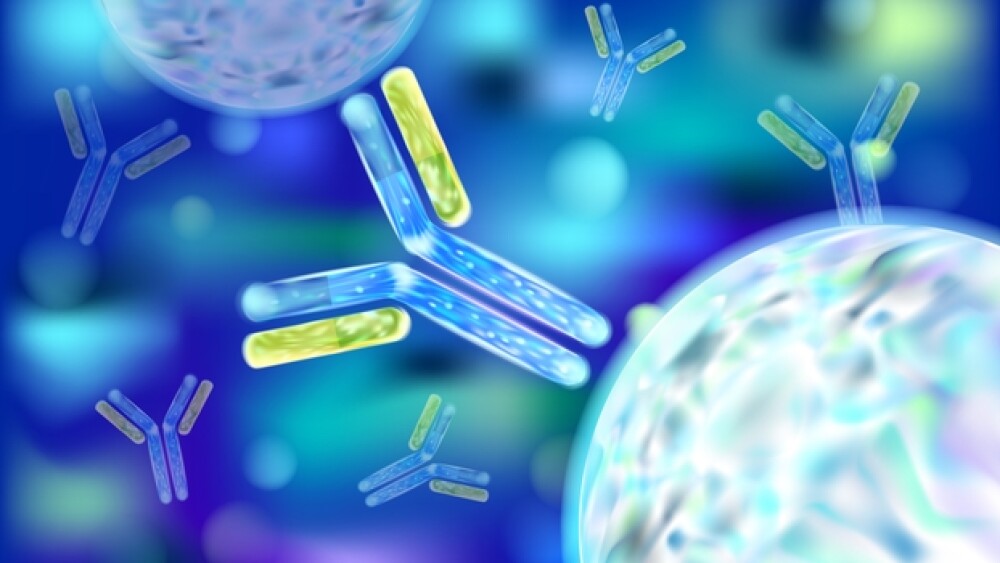Antibody research on cancer and neurological diseases is prioritized in series of biopharma research agreements.
Several biopharmaceutical companies have announced collaborations to develop therapeutic antibodies. Ranging from treating central nervous system diseases to developing antibody-drug conjugates for cancer, these research collaborations between biopharma companies are a huge win for the companies involved as well as for patients with autoimmune disorders.
One of the major announcements was a collaboration between two San Diego-based companies, Adcentrx Therapeutics and AvantGen. Adcentrx, a biotech company focused on accelerating breakthroughs in protein conjugate therapy for cancer, will now have access to AvantGen’s proprietary yeast display system and its large human antibody database.
Adcentrx will choose the targets that AvantGen’s tools will screen antibodies against. AvantGen’s tools allow scientists to discover, mature and generate monoclonal antibodies, a skill set that won AvantGen an award from the NIH’s RADx Next program in May 2021 to commercialize monoclonal antibodies against SARS-CoV-2.
In the agreement between Adcentrx and AvantGen, the two companies have signed a deal to discover and develop antibody-drug conjugates. The three-year deal will focus on developing targeted chemotherapy agents to target and kill cancer cells while preserving healthy cells.
“A key objective at Adcentrx, through this collaboration and opportunistic licensing activities, is to identify the best antibodies which we can leverage to assemble a pipeline of next-generation ADC therapeutics,” said Hui Li, Ph.D., the president and chief executive officer of Adcentrx.
ValenzaBio, a privately held biopharma company focused on autoimmune and inflammatory diseases, and Novelty Nobility, a private biotech company that develops antibody-based therapeutics for ophthalmology and oncology, had the following major announcement. The two companies have announced an exclusive worldwide license agreement to develop and commercialize VB517, a monoclonal antibody that could potentially treat mast cell-driven autoimmune diseases such as chronic urticaria.
Novelty Nobility’s preclinical package in the agreement, ValenzaBio paid Novelty Nobility an upfront payment, though the companies did not specify how much that payment was. Novelty Nobility will also receive certain sales royalties and other development and sales milestones from the agreement. The announcement also said that the companies look forward to an Investigational New Drug program and clinical studies in 2023.
The third significant development came from Fremont, California-based Alamar Biosciences and Rockville, Maryland-based SciNeuro Pharmaceuticals. In the press release, the two companies will lead a multi-program collaboration and licensing agreement focused on developing therapeutic antibodies.
Alamar and SciNeuro are a perfect match: Alamar has a proprietary platform called Attobody™, which creates a diverse yet specific pool of single-digit picomolar antibodies. This antibody pool has empowered Alamar to become a leader in proteomics for the early detection of cancer and other diseases.
Using Alamar’s platform, SciNeuro can continue its mission of finding cures for neurological diseases that are best treated with antibodies. Under the agreement, SciNeuro will get to choose the antibody targets, and SciNeuro will fully own any antibodies resulting from the research in an exclusive worldwide set of rights. Alamar will receive payments for the study and may receive further royalties on downstream clinical and commercial milestones, such as net sales of future products.
In all three of these agreements, antibodies are the key to unlocking future treatments. Whether treating patients for cancer or neurological diseases like Alzheimer’s, cures that involve antibodies are unique because antibodies utilize the body’s natural immune system. By harnessing the body’s own immune power, these companies hope that antibody treatments can target the diseases without harming other types of tissues in the body. But that will depend on how tissue- and cell-specific the antibody treatments can be.
“Antibody therapeutics are increasingly deployed against cancer, infectious diseases and neurological disorders, and their success critically depends on optimal affinity and specificity,” said Dr. Yuling Luo, chairman and CEO of Alamar.





